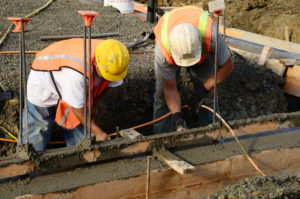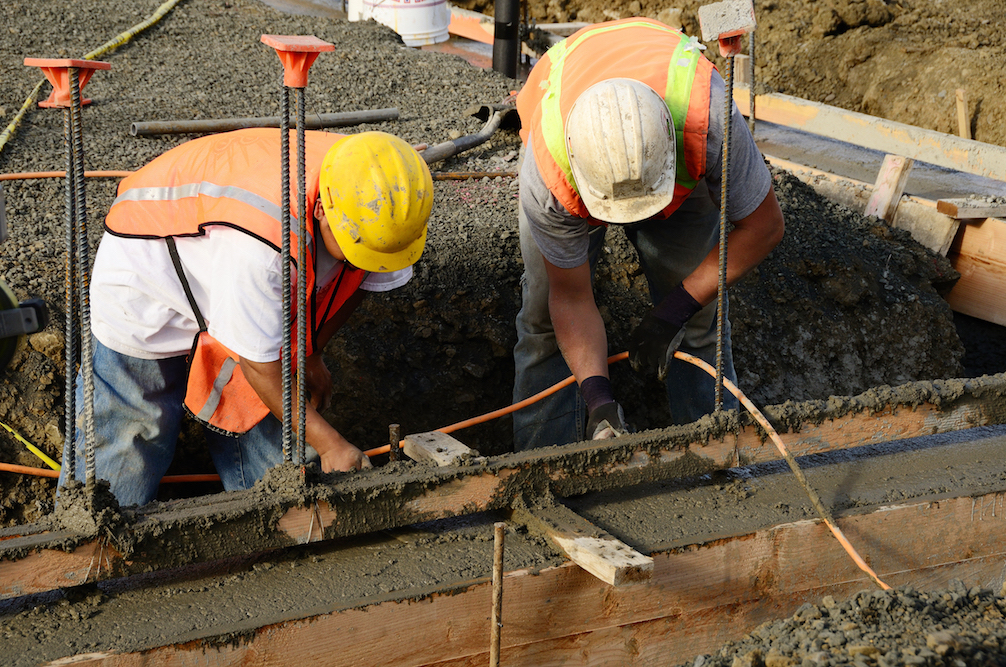
There was a lot of fuss when AB 1701 was passed, and rightfully so. That legislation, now codified at section 218.7 of the California Labor Code, made GCs liable for their subcontractors’ failure to pay wages. Recently, a contractor was cited under section 218.7.
Background on California AB 1701 and Labor Code 218.7
AB 1701 made waves when it was approved back in October of 2017. For the first time, California GCs were being held liable for their subcontractors’ failure to pay wages, as required. Since then, Maryland has followed suit, but still – this level of liability is relatively unparalleled across the country.
California Labor Code 218.7 makes a GC responsible for their subs’ failures to pay their employees. Now, contractors can also access their subs’ books. A GC can inspect their subcontractors’ payroll records to ensure they’re paying employees. And, if the subcontractor refuses access to the books, the contractor can withhold payment until that information is provided.
Finally, note that indemnification provisions aren’t blocked by the rule. So, a contractor can include language in their contract requiring that the subcontractor indemnify them if there is a wage complaint on their watch. Naturally, subcontractors tend to be less financially secure than prime contractors, so there’s limited protection here.
More discussion on AB 1701:
- California’s AB 1701 Makes GCs Liable To Pay Their Subs’ Employees
- California Contractors: The Nuts and Bolts of California AB 1701
California Labor Commissioner cites a subcontractor and their GC
Kim Slowey provides great discussion on this situation on Construction Dive.
It can be hard to size up legislation when simply looking at the law, itself. A recent example should provide some helpful context to how these laws work. We’ll summarize the situation below, but if you’d like to read it for yourself, here’s a news release from the Department of Industrial Relations.
Subcontractor cited for egregious wage theft
The California Labor Commissioner’s Office found that Universal Structural Building, a company who mostly acts as a subcontractor performing concrete work, severely underpaid its employees. The Commissioner’s Office ended up citing Universal Structural Building for over $525,000 in wage theft over 2 of their projects.
Here’s the breakdown of citations:
- $62,207 in unpaid minimum wages and $64,131 in liquidated damages for 62 employees
- $4,900 in unpaid overtime for 37 employees
- $15,950 for wage statement violations owed to 62 employees
- $330,345 in waiting time penalties owed to 62 employees
- $120,400 in civil penalties, including $15,000 for misclassifying a foreman as an exempt employee
California general contractor held liable for subcontractor’s failure to pay
Universal Structural Building had been hired, on one of the projects, by J.H. McCormick Inc, the project’s general contractor. But, while there was no allegation that the GC hadn’t made payments, as required, California Labor Code 218.7 held them accountable.
Nothing in the Commissioner’s report seems to indicate that the nonpayment resulted from the GC’s failure to pay. Further, nothing indicated that the J.H. McCormick was even aware of their sub’s failure to pay their laborers. Still, the GC was cited for $68,657. And, to ensure McCormick paid, the Commissioner’s Office actually filed suit against the GC.
Want to learn more about J.H. McCormick’s payment reputation?
McCormick Construction’s Contractor Profile
Multiple mechanics liens also filed by Universal Structural Building’s employees
There’s another relevant factor in play here. The employees who’d been going unpaid by Universal had sought help from the Labor Commissioner’s Office. Apparently, that office helped a total of 69 different laborers get paid for their work by filing over $135,000 in mechanics liens across two projects.
For more on California mechanics liens: California Mechanics Lien Guide and FAQs.
What should California contractors do to avoid penalties under AB 1701?
First, it’s a good idea to prequalify subcontractors. Hiring only subs with a sound track-record is a great start to avoiding issues. But, the work doesn’t stop there.
Under Labor Code 218.7, a contractor is entitled to inspect their subs’ payroll records. So, conceivably, a contractor will be able to spot deficiencies. Though, this does require a lot of additional back-office work. Plus, it’s hard to be confident that someone else’s books are being properly kept.
Finally, note that a contractor is fully entitled to require an indemnification agreement in anticipation of potential issues under Labor Code 218.7. So, a contractor can require that their sub shoulder the burden in the event that the GC gets dinged by the Labor Commissioner’s Office and the Department of Industrial Relations. But, keep in mind that if the GC is getting in trouble for their sub’s failure to pay workers – that sub is being cited too. And, an indemnification agreement won’t be very helpful if the sub is broke.
Creating healthy payment chains helps avoid wage disputes
The above solutions can help, but they miss the larger issue. Payment risk has become second nature in the construction industry. But, by building healthier payment chains on every job, it’s easier to be sure everyone gets paid what they’re owed – and that helps relieve pressure created by legislation like California’s AB 1701.
As we’ve discussed time and time again – clear communication, transparency, and collaborative atmospheres will decrease payment risk. And, the best way to build a project with those attributes is to start with preliminary notices.
Related California resources

